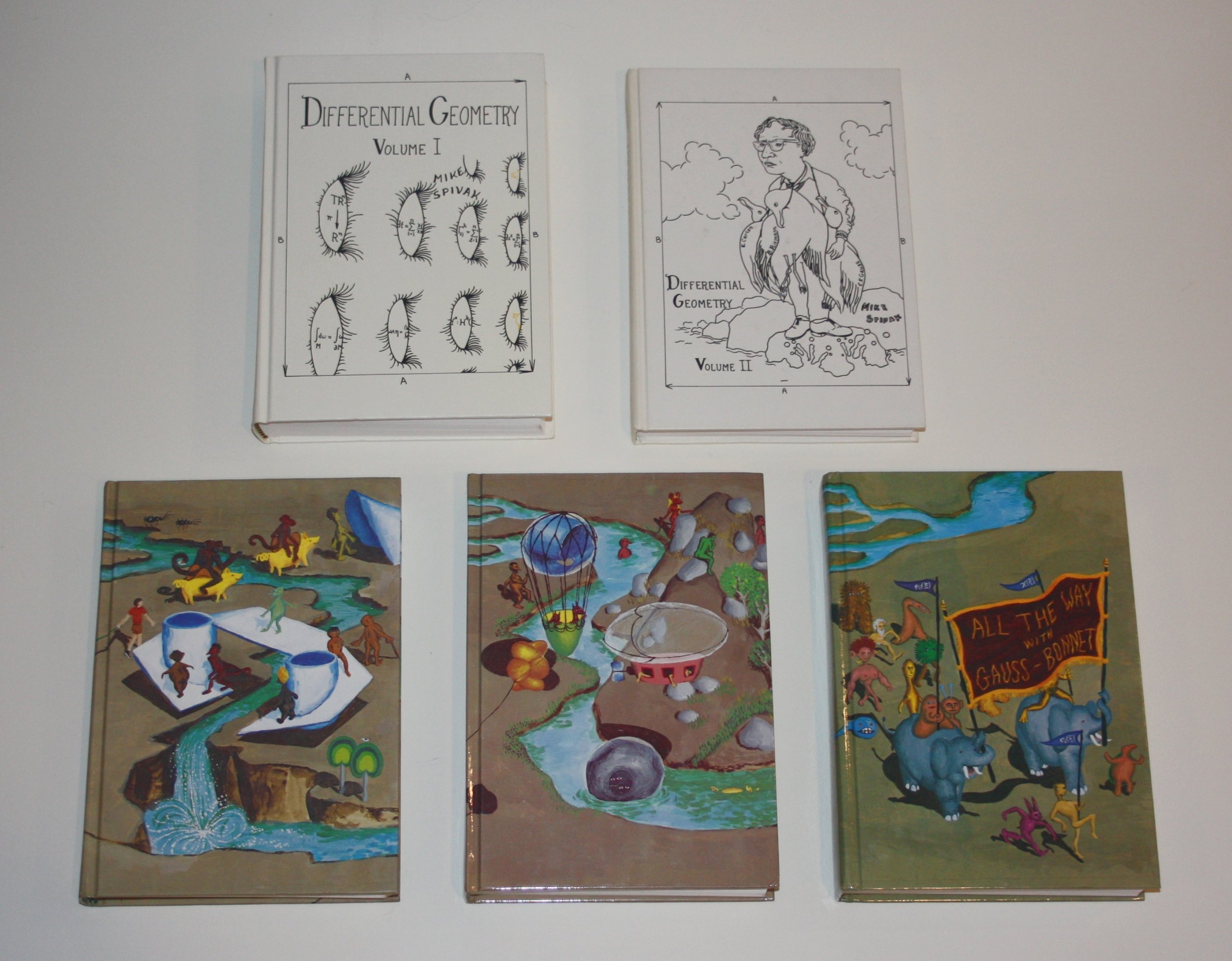Tape all components of your project up, including the annotated bibliography.
During your session, you must stand by your project,
to present your project to classmates and answer their questions.
By the end of class, turn in your project components and peer review and
self-evaluation. Partners are in different sessions.
Unfortunately
I can only spend a limited amount of time on each project (so I can get
around), but I'll look at your project more carefully later!
Presentations and Peer Review:
If you are presenting then you should present both part 1 and part 2 of your
project. If you are conducting peer review, then you should read through
the project and actively listen to the presentation. The depth
of peer review is more important than getting to everyone who is
not in your research session, but regardless, you should spend the entire
research session engaging in differential geometry
discussions and reflections.
- Name of the person and the topic
- List the topics from class that relate
- Give suggestions for improvement on part 1 (the review of related class material)
- List a few strengths of the project
- Give suggestions for improvement on the presentation or other
portions of the project
- All content appears to be original or cited in the annotated
references
[2 = definitely, 1 = could use some improvement, 0 = major improvement needed here]
- How much time and effort does it look like they
put into their work, as compared to your own effort?
[2 = more than me, 1 = about the same as me, 0 = less than me]
- What did you learn?
- What is your favorite part of their project?
- Invent a question about the project. List the question and the person's
answer.
Neighbors: During your research session, if you are
waiting for someone to come hear you, then listen to your neighbors and do a
partial peer review of their project.
Self-Evaluation: Answer the following after you have presented
your project:
- Your name and topic
- What would you have improved about your project?
- What did you feel went well?
Feel free to stop by office hours this summer or
next semester to discuss your final project
or anything else and happy summer!
I've enjoyed working with you and the chance to dive into Einstein's
field equations!
If you are looking for more differential geometry, there is so much more
possible,
including Michael Spivak's classic five volumes!


